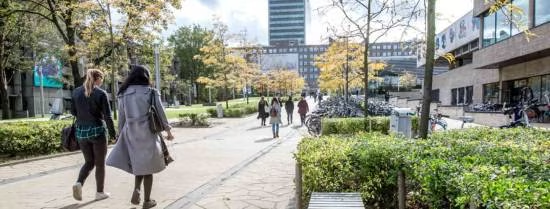Indonesia, with a population 16 times larger than the Netherlands and over 17,000 islands, faces unique challenges in providing healthcare access, particularly in remote regions. However, significant progress has been made through the National Health Insurance program, Jaminan Kesehatan Nasional (JKN), launched in 2014. The initiative aims to provide universal health coverage to Indonesia’s 284 million citizens, with more than 90% of the population currently enrolled.

JKN has played a key role in Indonesia’s transition to an Upper-Middle Income Country, contributing to declines in child mortality, reduced stunting under age 5, and increased life expectancy. "One of the bigger health challenges Indonesia faces today is the rise of childhood obesity," stated Dr. Robert Sparrow, Associate Professor, International Institute of Social Studies, and member of the Rotterdam Global Health Initiative (RGHI), as the country shifts from battling infectious diseases to addressing wealth-related health issues.
Healthcare in Remote Areas
While JKN has expanded healthcare access, quality remains uneven, particularly in remote areas where facilities often lack resources and trained personnel. Geographical barriers continue to make it difficult for healthcare workers and patients to access services. “Supply readiness is dramatically hindered in remote regions,” said Dr. Robert Sparrow, as seen in the figure below indicated by the colour red.
Financial sustainability of JKN
As Indonesia’s population ages and chronic illnesses rise, healthcare costs are increasing, posing challenges for the financial sustainability of JKN. Many Indonesians remain unaware of the full benefits available to them, leading to underuse of services and higher out-of-pocket expenses for treatments not covered by JKN. This can deter people from seeking timely care, leading to more severe conditions that require costly treatments later.
Collaboration Between Indonesia and the Netherlands
The Rotterdam Global Health Initiative (RGHI) is partnering with over 15 Indonesian knowledge institutions to address these issues through collaborative research. " As Indonesia’s national health insurance grows into its adolescent years, and as their health challenges change, the Indonesian government is funding their students to conduct research at Erasmus School of Health Policy & Management, Erasmus MC and other EUR schools. Together, we can research specific health policy challenges and solutions," said Dr Igna Bonfrer, Director of RGHI. She expressed hope that these joint efforts will inspire further collaboration between Indonesia and the Netherlands.
Building Communication Skills for Scientists
Improving the communication skills of scientists is also a focus. Researcher Amalia Hasnida emphasised the importance of conveying research beyond the academic world. "We have a responsibility to society to communicate science effectively," she said. Hasnida, along with PhD candidate Relmbuss Fanda, organised a competition where seven early-career researchers pitched their research in five minutes, with a focus on content and clarity. "It was very impressive," Hasnida concluded.
Indonesia's health insurance program has made notable progress in its first decade, but challenges remain in ensuring consistent quality and financial sustainability. With continued collaboration and innovation, the program has the potential to further improve health outcomes across the archipelago.
RGHI Start of the Academic Year

Slides Start of the Academic Year Event
- Onderzoeker
- Onderzoeker
- Promovendus
- Universitair Hoofddocent
- Gerelateerde content




